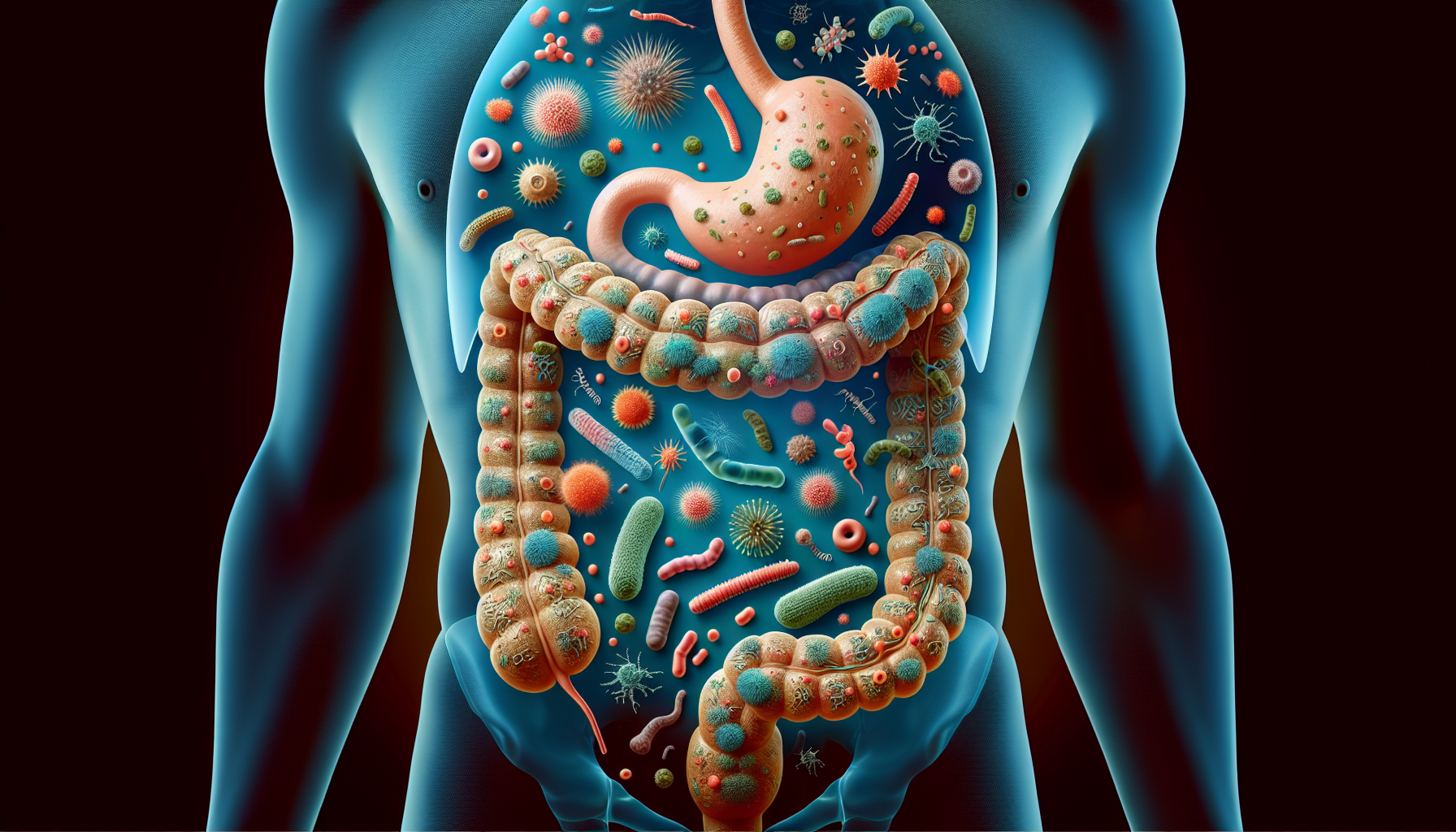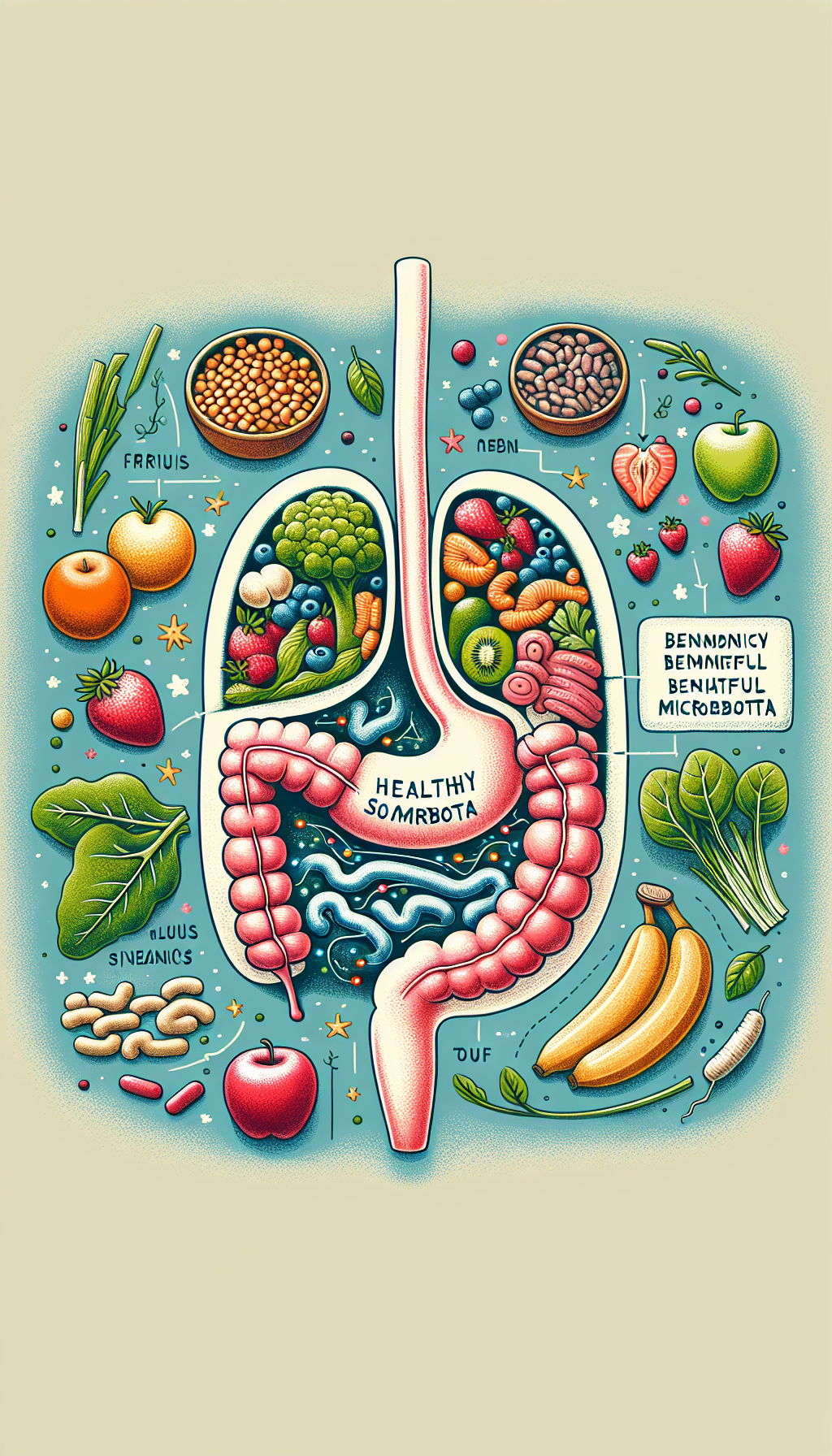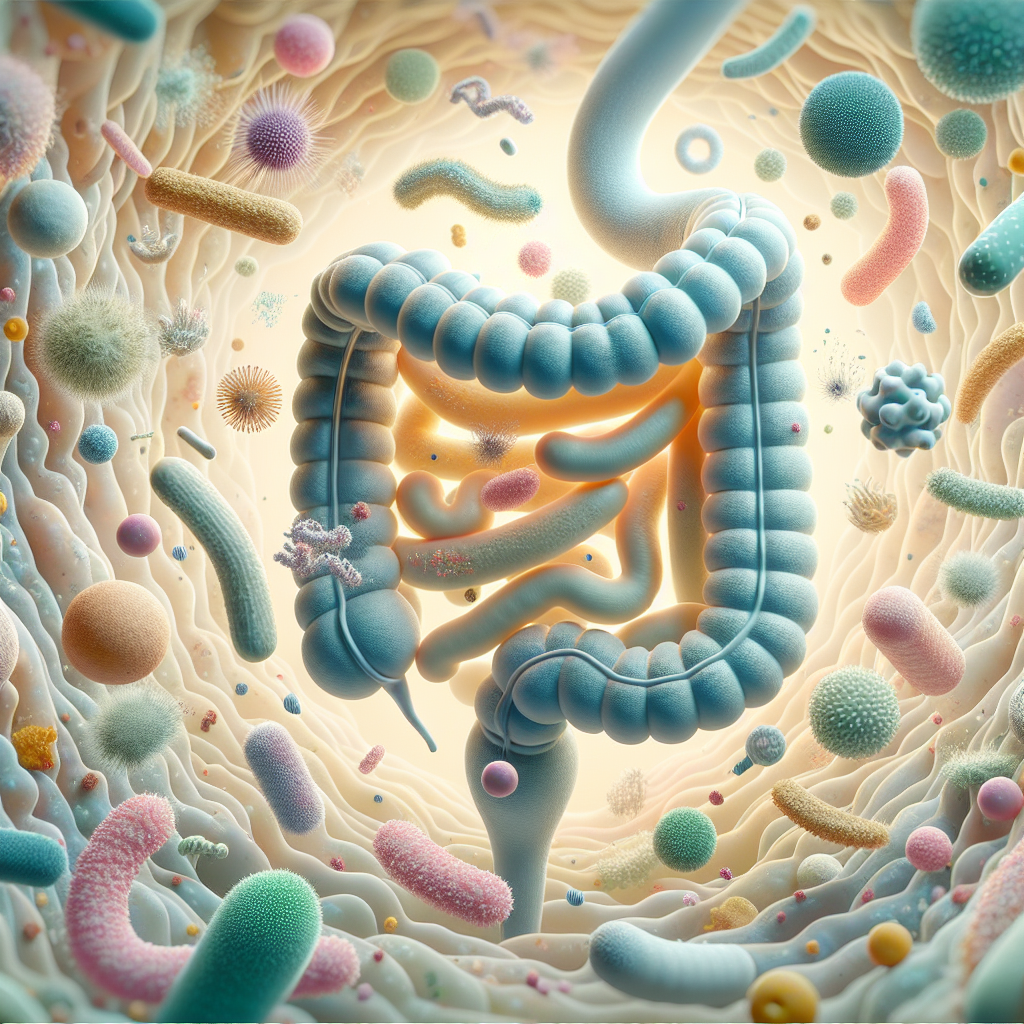The complex ecosystem within our stomach plays a pivotal role in our overall health. The stomach microbiota, a community of microorganisms residing in the human stomach, is an integral part of this ecosystem. Understanding its significance is crucial for maintaining optimal digestive health, which is a cornerstone of wellbeing.
The Role of Stomach Microbiota
Stomach microbiota consists of various bacteria, fungi, viruses, and other microscopic living things. These organisms work synergistically to perform essential functions, such as aiding digestion, synthesizing vitamins, and protecting against pathogens. The stomach’s acidic environment is a deterrent for many microorganisms, but those that do thrive there are well-adapted and contribute significantly to the digestive process.
Digestive Assistance and Nutrient Synthesis
The stomach microbiota assists in breaking down food substances that are difficult to digest, such as certain fibers and complex proteins. This process not only helps in nutrient extraction but also produces vitamins like vitamin K and some B vitamins, which are vital for blood coagulation, energy production, and overall health.
Pathogen Protection
By occupying ecological niches in the stomach, the microbiota prevents harmful pathogens from colonizing the stomach lining. This phenomenon, known as "colonization resistance," is a natural way our bodies maintain a healthy balance and protect us from gastrointestinal infections.
Immune System Modulation
The bacteria in the stomach also interact with the immune system, teaching it to distinguish between friendly and harmful organisms. This interaction is crucial for preventing the immune system from overreacting to benign substances, which can lead to allergies or autoimmune diseases.
Factors Affecting Stomach Microbiota
Several factors can influence the composition and function of the stomach microbiota, including diet, medications, lifestyle, and diseases. For instance, the overuse of antibiotics can disrupt the microbial balance, leading to a decrease in beneficial bacteria and an increase in resistant strains. Similarly, poor dietary choices can negatively affect microbiota diversity.
Diet
A diet rich in diverse, fibrous foods supports a varied microbiota, which is associated with better digestive health. Fiber acts as a prebiotic, feeding beneficial bacteria and promoting their growth. Conversely, a diet high in processed foods and sugars can lead to a less diverse microbiota, which may impact health negatively.
Medications
Apart from antibiotics, other medications like proton pump inhibitors (PPIs) used to treat acid reflux can alter stomach acidity and microbiota. It’s essential to use such medications judiciously and under medical supervision.
Health Implications of Disrupted Stomach Microbiota
An imbalance in the stomach microbiota, known as dysbiosis, can have far-reaching health implications. Dysbiosis has been associated with a range of conditions, including:
- Gastrointestinal diseases such as gastritis, peptic ulcers, and stomach cancer
- Metabolic disorders like obesity and diabetes
- Immune system-related conditions, including allergies and autoimmune diseases
One of the most well-documented examples of the impact of stomach microbiota on health is its role in Helicobacter pylori infections. H. pylori is a bacterium that can cause chronic gastritis and peptic ulcers, and its presence is influenced by the overall health of the stomach microbiota.
Enhancing Stomach Microbiota for Better Digestive Health
There are several strategies you can adopt to enhance the health of your stomach microbiota:
Probiotics and Prebiotics
Incorporating probiotics and prebiotics into your diet can help maintain a healthy balance of stomach microbiota. Probiotics are live beneficial bacteria found in fermented foods, while prebiotics are nondigestible food components that stimulate the growth of healthy bacteria.
Healthy Eating Habits
Adopting a diet rich in whole foods, such as fruits, vegetables, legumes, and whole grains, can promote a diverse and robust microbiota. Avoiding excessive consumption of highly processed foods and sugars is also beneficial.
Stress Management
Chronic stress can negatively affect stomach microbiota. Engaging in stress-reduction activities, such as exercise, meditation, or yoga, can have a positive impact.
Avoid Unnecessary Antibiotics
Antibiotics can disrupt the balance of microbiota. They should be used only when necessary and with a prescription from a healthcare provider.
Regular Medical Screening
Regular medical check-ups can help detect and manage any issues that might affect stomach microbiota, such as infections or chronic conditions.
Conclusion
The stomach microbiota plays a crucial role in our digestive health and overall wellbeing. By understanding the factors that affect these microorganisms and taking steps to maintain a healthy microbial balance, we can support our digestive system and prevent a range of health issues.
For further reading on digestive health, consider exploring the importance of gut health for overall wellbeing, dietary fiber’s role, and strategies for managing IBS.
To learn more about how to foster a healthy digestive ecosystem, visit these resources:
- A comprehensive overview of the human gastrointestinal microbiota: The Human Gastrointestinal Microbiota
- Detailed information on the impact of diet on stomach microbiota: Diet and Microbiota in Health and Disease
- Insights into the interplay between stress and stomach microbiota: Stress & the Gut-Brain Axis
Maintaining a healthy stomach microbiota is a journey that encompasses mindful eating, lifestyle choices, and understanding the intricate relationships within our bodies. By fostering a thriving microbial community in our stomachs, we can unlock the door to better health and vitality.



